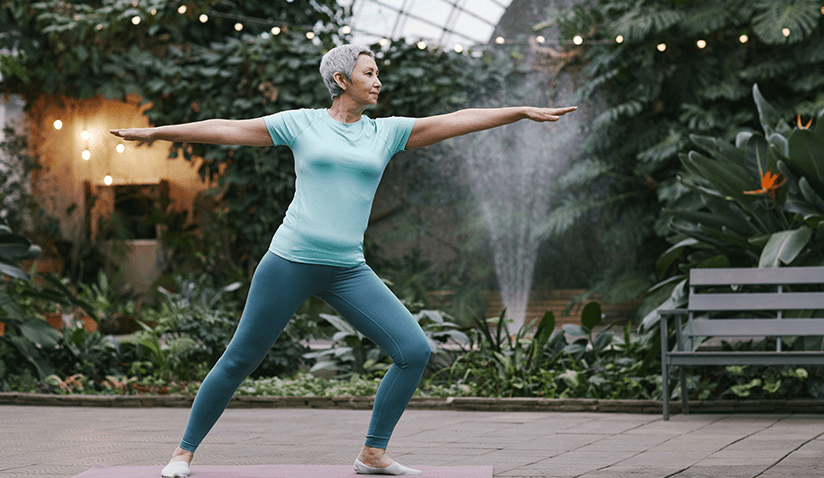WHAT YOU NEED TO KNOW ABOUT SUNSCREEN

Summer is coming once again and with most countries emerging from lockdowns due to COVID-19, we will most likely see plenty of people out in the sun enjoying the nice weather. But this also means that most of those people (having been indoors for the best part of the year) will have a more tender skin than normal and will have to be a bit more careful than usual if they are planning long activities under the sun.
The use of sunscreen as one of the several strategies for sun protection is fairly popular with some countries reporting a prevalence of 23.4% in men and 43.6% in women [1]. However, over time, some arguments and concerns against the use of sunscreens in general or against specific varieties of sunscreens have been raised, with that in mind, this article will consider some of the most common ones and provide information about their validity [2].
A. “Sunscreen does not protect against cancer”
This is a common and very valid concern; most people use sunscreen as a method to prevent the development of skin cancer.
Studies about sunscreen and cancer incidence are difficult to make, mainly because participants’ behavior is difficult to control and most studies cannot follow their participants all the time, so many variables can potentially influence the final results. In this type of situation, single small studies can never be considered as 100% true, only consistent tendencies pointed out by a number of studies performed by different unrelated authors can provide more reliable evidence. A systematic review in 2019 provided evidence based on over 500 independent sources affirming that daily use of sunscreen on all exposed areas was a valid and effective effort to prevent skin cancer. In the case of melanoma, some studies reported up to 73% reduction of risk [3].
B. “Sunscreen is associated to more malign forms of cancer”
This claim is based on evidence suggesting that some forms of vitamin A that are common ingredients in sunscreen promote the development of skin tumors in mice, however, conclusions from animal studies cannot be directly extrapolated to humans, also, the methodology for these experiments is very different to the way people use sunscreen in real life [4].
Studies performed in humans with sunscreen containing vitamin A derivatives often conclude that there is no evidence suggesting that this practice promotes skin cancer development [5].
C. “People who use sunscreen with high SPF (sun protection factor) spend more time under the sun”
This claim is actually correct but slightly misleading. People who partake in intentional sun exposure practices often abuse their sunscreen by using it not to protect themselves but as a method to endure prolonged sun exposure of their skin with the intention of getting a tan [6].
Sunscreen works by decreasing the amount of UV light that actually reaches your skin but it does not block it completely, therefore, with enough time of exposure, your skin will still suffer from sunburns and other forms of damage [6].
D. “Sunscreens with SPF over 50 do not provide more protection against sunburns”
This notion is not completely unsupported by evidence; however, the reality is that the problem is not a matter of science but of marketing, some companies label their sunscreens as having a SPF over 50 when the real number is lower. In cases where the SPF is actually >50, studies support and even recommend its use for prolonged and recurrent sun exposure [7].
E. “Excessive use of sunscreen can lead to vitamin D deficiency”
Most of the vitamin D in our body is produced by a process that requires sun exposure and deficiencies can be dangerous for our health, however, blocking UV rays with sunscreen (event at high SPF levels) is unlikely to cause any deficiency in healthy individuals [8].
In cases of people with photosensitive conditions that avoid sun exposure and are required to always cover their skin and use strong sunscreen, vitD deficiency does become a factor in which case vitD supplementation is recommended [8].
F. “Sunscreen ingredients can be absorbed by the body and cause problems”
This is a good point. Although each sunscreen brand is different, some common ingredients are absorbed through the skin and can be detected in blood after use. Avobenzone, Oxybenzone, Octocrylene and Ecamsule are good examples of this type of chemical. Allergies are always a risk and some users can potentially have an allergy to some absorbed component which would make using sunscreen harmful, however, In the great majority of cases of people without allergies, the worst consequences of having these ingredients temporarily in their bodies is limited to a rash [9]. Additionally, there are sunscreens that are available without these ingredients
G. “I don’t need sunscreen now that I have to wear a facemask”
While a facemask might offer some protection, it is not going to fully protect you from UV rays. Additionally a mask only covers half your face and could lead to half a face tan if sunscreen is not applied properly. Dermatologists still recommend wearing sunscreen underneath your face masks to prevent burns and harmful UV Rays.
Sunscreen is only an element of a strategy to protect your skin from the sun, at no point the scientific community claims that is 100% effective, however, it is effective in providing some shielding from the full dosage of UV light from the sun and should definitely be used if your intention is to be outside often this summer and do not suffer from any medical condition that could make you more vulnerable some of its come common ingredients.
To search for the best healthcare providers worldwide, please use the Mya Care search engine.
References:
- [1] Sun protection. (2020, April 10). Retrieved from https://www.cdc.gov/cancer/skin/statistics/behavior/sun-protection.htm
- [2] Why I don't wear sunscreen. (n.d.). Retrieved from https://www.treehugger.com/why-i-dont-wear-sunscreen-4868731
- [3] Perugini, P., Bonetti, M., Cozzi, A. C., & Colombo, G. L. (2019). Topical Sunscreen Application Preventing Skin Cancer: Systematic Review. Cosmetics, 6(3), 42.
- [4] National Toxicology Program. (2012). Photocarcinogenesis study of retinoic acid and retinyl palmitate [CAS Nos. 302-79-4 (All-trans-retinoic acid) and 79-81-2 (All-trans-retinyl palmitate)] in SKH-1 mice (Simulated Solar Light and Topical Application Study). National Toxicology Program technical report series, (568), 1.
- [5] Wang, S. Q., Dusza, S. W., & Lim, H. W. (2010). Safety of retinyl palmitate in sunscreens: a critical analysis. Journal of the American Academy of Dermatology, 63(5), 903-906.
- [6] Autier, P. (2009). Sunscreen abuse for intentional sun exposure. British Journal of Dermatology, 161, 40-45.
- [7] Kohli, I., Nicholson, C. L., Williams, J. D., Lyons, A. B., Seo, I., Maitra, P., ... & Hamzavi, I. H. (2020). Greater efficacy of SPF 100+ sunscreen compared with SPF 50+ in sunburn prevention during 5 consecutive days of sunlight exposure: A randomized, double-blind clinical trial. Journal of the American Academy of Dermatology, 82(4), 869-877.
- [8] Passeron, T., Bouillon, R., Callender, V., Cestari, T., Diepgen, T. L., Green, A. C., ... & Marrot, L. (2019). Sunscreen photoprotection and vitamin D status. British Journal of Dermatology, 181(5), 916-931.
- [9] Matta, M. K., Zusterzeel, R., Pilli, N. R., Patel, V., Volpe, D. A., Florian, J., ... & Kemp, S. (2019). Effect of sunscreen application under maximal use conditions on plasma concentration of sunscreen active ingredients: a randomized clinical trial. Jama, 321(21), 2082-2091.
- [10] Yes, You Should Still Be Wearing SPF Under Your Protective Face Mask — Here's Why https://www.popsugar.com/beauty/sunscreen-under-protective-face-mask-47449010
Disclaimer: Please note that Mya Care does not provide medical advice, diagnosis, or treatment. The information provided is not intended to replace the care or advice of a qualified health care professional. The views expressed are personal views of the author and do not necessarily reflect the opinion of Mya Care. Always consult your doctor for all diagnoses, treatments, and cures for any diseases or conditions, as well as before changing your health care regimen. Do not reproduce, copy, reformat, publish, distribute, upload, post, transmit, transfer in any manner or sell any of the materials in this blog without prior written permission from myacare.com.



